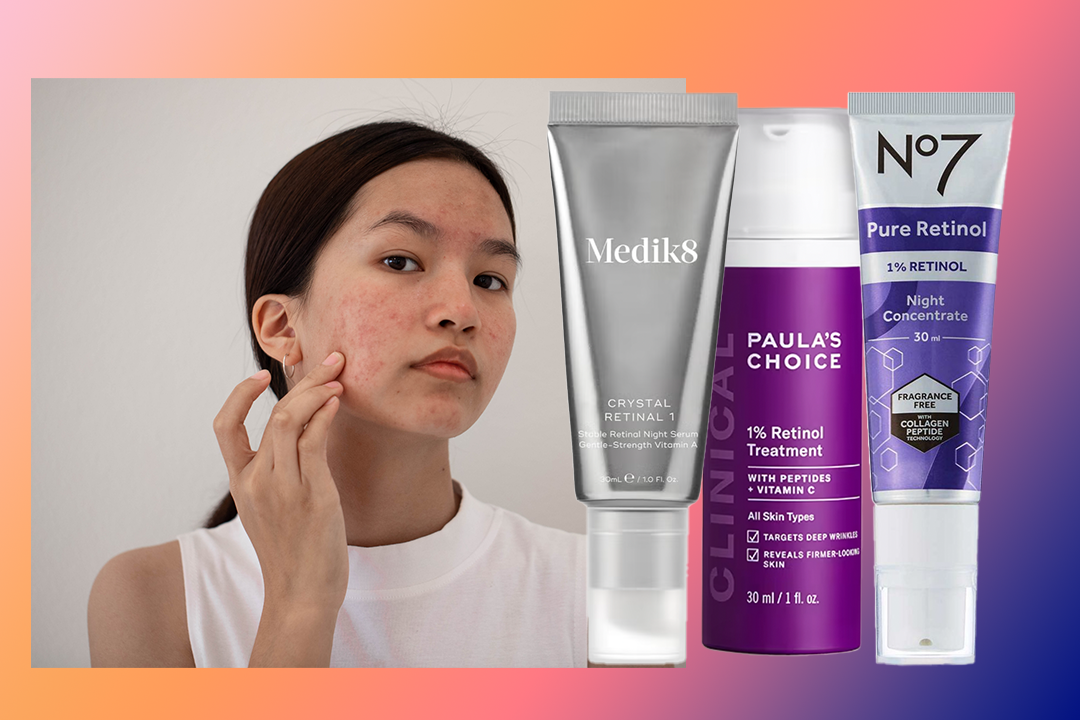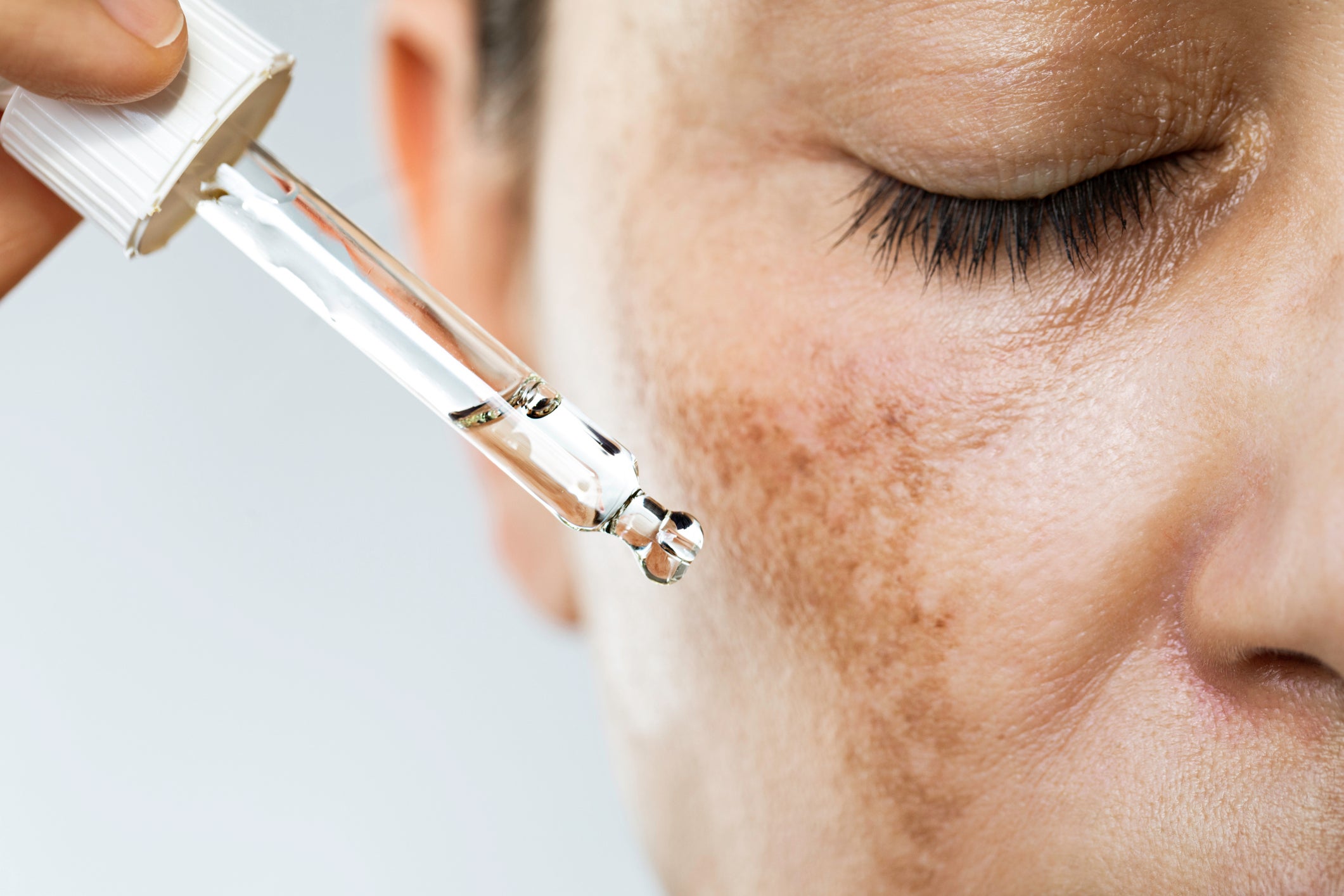Everything you need to know about the EU retinol ban
We asked an expert to shed some light on the new rules

Your support helps us to tell the story
From reproductive rights to climate change to Big Tech, The Independent is on the ground when the story is developing. Whether it's investigating the financials of Elon Musk's pro-Trump PAC or producing our latest documentary, 'The A Word', which shines a light on the American women fighting for reproductive rights, we know how important it is to parse out the facts from the messaging.
At such a critical moment in US history, we need reporters on the ground. Your donation allows us to keep sending journalists to speak to both sides of the story.
The Independent is trusted by Americans across the entire political spectrum. And unlike many other quality news outlets, we choose not to lock Americans out of our reporting and analysis with paywalls. We believe quality journalism should be available to everyone, paid for by those who can afford it.
Your support makes all the difference.Retinol has been a beauty buzzword for quite some time, with countless brands, beauty buffs and influencers pushing the product as the secret to great skin. So, it may have come as a surprise to some to learn that the European Union Commission is tightening restrictions on the much-loved skincare ingredient – banning the use of it above certain concentrations.
While retinol, a derivative of vitamin A, does improve skin texture, collagen production and cell turnover – reducing the appearance of fine lines, wrinkles, large pores and pigmentation – it can be a highly irritating ingredient.
So, we sat down with Dr Jonathan Dunne, consultant plastic and reconstructive surgeon and co-founder of the Montrose London clinic, to find out exactly what the ‘retinol ban’ means, which products will be affected and when and why these measures are coming into action.
Keep reading for everything you need to know about the popular skincare ingredient.
What is retinol?
We went back to basics to understand exactly how the ingredient works when applied to the skin. “Retinol works by binding to retinoid receptors in the skin, which influences a variety of cellular processes. It helps in cell turnover, making way for new skin, and inhibits the breakdown of collagen, thereby improving the elasticity and appearance of the skin,” said Dr Dunne.
Despite these skin-boosting benefits, the potent ingredient can cause irritation, including redness, dryness, and peeling for first-time users. In fact, it’s a common enough occurrence that it has coined its own term on social media: ‘retinol purging’. Meanwhile, more severe, although rarer, side effects include acne breakouts, eczema flare-ups, skin discolouration, swelling and stinging.
“The EU’s decision to restrict the concentration of retinol in over-the-counter products stems from concerns about its potential for causing skin irritation and harm at higher concentrations. This regulation is in place to safeguard consumers from adverse effects such as redness, peeling, and increased sensitivity to sunlight, which are more likely to occur with higher concentrations of retinol without proper guidance and supervision,” explained Dr Dunne.

What does the EU retinol restriction mean?
The latest restrictions will be rolled out over 36 months, starting at the end of 2024. The new regulations include a retinol (or retinol equivalent) percentage of 0.05 in body lotions and 0.3 in face and hand products. Plus, product labels will be required to state: “Contains vitamin A-related compounds, which contribute to your daily intake of vitamin A.” Although, prescription-strength vitamin A products will still be available through doctors and dermatologists.
“The restriction on higher concentrations of retinol without a prescription is based on the risks of having too much vitamin A. While retinol is effective in skin rejuvenation and acne treatment, its potent activity can also lead to skin irritation and damage if used improperly. However, the primary reason to restrict high retinol concentrations is because high doses can produce adverse effects similar to oral supplements,” Added Dr Dunne.
“Vitamin A is present in dairy and fish, so there is a risk of exceeding the upper recommended limit of vitamin A with application of high retinol concentrations. Too much vitamin A can increase the risk of fractures in later life, and high doses during pregnancy can uncommonly lead to birth defects. So, the EU’s move is aimed at ensuring consumers have access to safe concentrations of retinol that deliver benefits without undue risk, particularly in the absence of professional oversight,” explained Dr Dunne.
What should we do with our old retinol products?
So, what should we do with the retinol products we already own? “As with any active skincare ingredient, it’s essential to use retinol responsibly, paying attention to product concentration, starting with lower strengths and considering professional advice for higher concentrations. This approach ensures individuals can achieve their skincare goals safely and effectively,” advises Dr Dunne.
He also assures us the new restricted concentrations “can still provide substantial benefits with a reduced risk of adverse effects”. Yet whether you discard any retinol skincare products over the 0.3 per cent concentration will come down to personal preference. Although, you can, of course, visit a doctor or dermatologist to talk through potentially receiving a more potent prescribed product, if you think one is needed.
All in all, it seems like the new regulations can only be a positive step for skincare stans.
Voucher codes
For the latest offers on make-up and more, try the links below:
For more beauty buff intel, take a look at our guide to Ayurvedic beauty